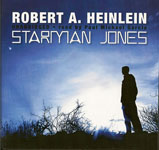
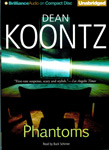 Phantoms
Phantoms
By Dean Koontz; Read by Buck Schirner
12 CDs – 15 Hours [UNABRIDGED]
Publisher: Brilliance Audio
Published: January 2008
ISBN: 9781423339267
Themes: / Horror / Suspense / Science Fiction / Mass Disappearance / California /
They found the town silent, apparently abandoned. Then they found the first body strangely swollen and still warm. One hundred fifty were dead, 350 missing. But the terror had only begun in the tiny mountain town of Snowfield, California. At first they thought it was the work of a maniac. Or terrorists. Or toxic contamination. Or a bizarre new disease. But then they found the truth. And they saw it in the flesh. And it was worse than anything any of them had ever imagined…
I went into this novel with low expectations. Our resident Dean Koontz aficionado was telling me that Phantoms wasn’t one of Koontz’s best works. That’s the bright side about low expectations – it makes the mediocre seem better. My biggest complaint isn’t really with the story at all – but rather with its length. 15 hours is a bit too long for a novel with this content and plot – there’s a whole separate subplot about an escaped criminal and his subsequent interactions with a biker gang. These parts of the book get mentioned a couple of times by the main narrative – but are otherwise un-interactive until the end of the novel. That whole subplot might have made an interesting short story, if separate, but it ends up being a side-note that doesn’t come to any real fruition, except in what felt like a tacked on end piece. Still, the main narrative is rather compelling. Dr. Jennifer Page, who lives and works in the small resort town of Snowfield, California, is returning from the big city and in doing so she’s taking with her much younger sister Lisa. Their mom has recently died and Jenny plans to raise her younger sister in the small town. Unfortunately, their arrival in Snowfield yields a much more horrifying and surprising disaster than the mere death of their mom. Everyone in town is missing! Well, almost everybody is missing anyway, with those few who aren’t entirely disappeared being completely dead – having been killed in grisly or bizarre fashions. The only clue to what has happened in Snowfield, while Jenny has been out of town, is a near incomprehensible message scrawled onto a bathroom mirror.
Fans of certain H.P. Lovecraft stories, John Carpenter’s The Thing, and Stephen King‘s The Mist will likely quite enjoy this tale. Thinking back on myself, it feels as if Phantoms would have made an excellent late 1960s or early 1970s Doctor Who serial. What I liked most about it was not the atmosphere of spookiness (that seems a high point to a lot of folks), but rather the care and attention to the back story and the explanations which Koontz put into the lead up to the events in snowfield. I can’t recall a lot of other novels that have dealt with the “mass disappearance” phenomenon. I do recollect one film on the topic, The Quiet Earth (it is terrific) but has a far different execution and feel than does Phantoms. Speaking of film, I recommend you shy away from the film version of Phantoms entirely – it trims down the plot (which you’d think would be good) – but manages to feel rather crappy all-around, despite being adapted to film by Koontz himself.
Phantoms gave Dean Koontz a reputation as a horror writer, Koontz describes the novel as “one of the ten biggest mistakes” of his life because, it earned the label horror writer, which he says he “never wanted, never embraced, and [has] ever since sought to shed.” I can see it. The actual novel is definitely working within the rules of Science Fiction. Sadly, suspense, which Koontz does embrace, is often confused with horror – and hence his problem. The initial publication of Phantoms in 1983 garnered the novel several positive reviews. But only Analog’s review clearly recognized Koontz’s attempt to put technology and science to the fore in Phantoms. Narrator Buck Schirner sounds a whole lot like Mel Blanc. He’s got a good range, and changes his voice for different character genders, ages, and accents. The cover on this audiobook is sadly wholly uninformative, as is the bland title. The novel should have been called “The Ancient Enemy” and the cover should have depicted an open sewer grate, or a sink full of jewelry.
Posted by Jesse Willis

 With 9 volumes of short stories now out there’s no doubt there’s a plethora of SF listening available over on LibriVox.org. I love these collections, they have a good variety and not too much repetition …. oh wait, I take that last part back. It’s the constant repetition that is impairing these collections. LibriVoxateers, please stop recording Kurt Vonnegut’s 2BR02B. Otherwise, keep up the great work!
With 9 volumes of short stories now out there’s no doubt there’s a plethora of SF listening available over on LibriVox.org. I love these collections, they have a good variety and not too much repetition …. oh wait, I take that last part back. It’s the constant repetition that is impairing these collections. LibriVoxateers, please stop recording Kurt Vonnegut’s 2BR02B. Otherwise, keep up the great work!

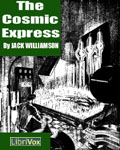


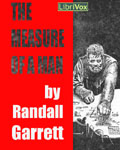
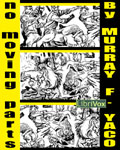
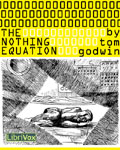

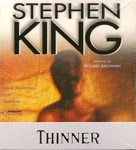

 Here’s a question nobody’s been asking (but should have). Where are all the Charles Stross audiobooks?
Here’s a question nobody’s been asking (but should have). Where are all the Charles Stross audiobooks?
